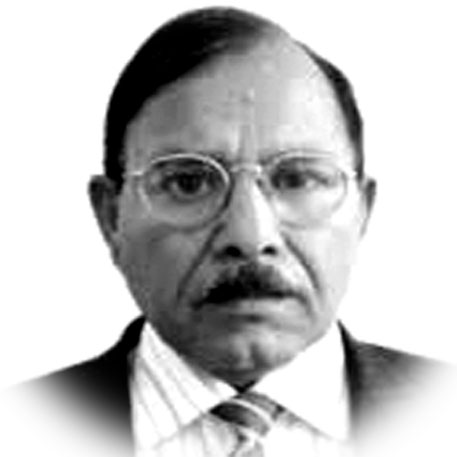Tackling drug abuse and illicit trafficking
DRUG Abuse and illicit trafficking admittedly has very serious economic and social consequences for the societies where this menace exists and the drug traffickers thrive, besides impacting the health of the drug users with devastating repercussion for their families.
Over the time it has become a global issue necessitating cooperative effort on the part of the global community and governments.
In view of the severity of the problem the UN has established the United Nations Office on Drugs and Crime (UNDOC) charged with the responsibility to help make the world safer from drugs, organized crime, corruption and terrorism which are drugs-related issues.
The agency is committed to achieving health, security and justice for all by tackling these threats and promoting peace and sustainable well-being as deterrents to them.
Because the scale of these problems is often too great for states to confront alone, UNODC offers practical assistance and encourages transnational approaches to action in all regions of the world through its global programmes and network of field offices.
UNODC also commemorates the International Day Against Drug Abuse and Illicit Trafficking which is a United Nations International Day against drug abuse and the illegal drug trade. It is observed annually on 26 June, since 1989.
The observance of this day was instituted by General Assembly Resolution 42/112 of 7 December 1987 as an expression of its determination to strengthen action and cooperation to achieve the goal of an international society free of drug abuse.
The observance of the International Day Against Drug Abuse and Illicit Trafficking each year supported by individuals, communities, and various organizations all over the world, aims to raise awareness of the major problem that illicit drugs represent to society.
The General Assembly recognized that despite continued and increased efforts by the international community, the world drug problem continues especially through borders and constitute a serious threat to public health, the safety and well-being of humanity, in particular young people, and the national security and sovereignty of States, and that it undermines socio-economic and political stability and sustainable development.
It encouraged UNODC to continue their work on international drug control and urged all governments to provide the fullest possible financial and political support to enable it to continue, expand and strengthen its operational and technical cooperation activities, within its mandates.
Pakistan is a transit, destination, and to a lesser extent, producing country for drugs and precursor chemicals.
This illicit narcotics trafficking poses significant challenges to border management – a critical issue for economic development and security in Pakistan and its neighbouring countries.
The fragile situation, combined with the porous border with Afghanistan, presents prevailing challenges for the national LEAs.
The problem of drug abuse and illicit trafficking in Pakistan is actually a consequence of the Afghan war against the (former) Soviet Union.
Before it, there was no serious issue regarding drugs in Pakistan. Unfortunately this activity also thrived during Taliban fight against the invading US and NATO forces.
The areas under their control produced drugs which were sent to overseas destinations, including Pakistan to finance their war effort.
UNODC has been closely engaged with Pakistan for over 36 years, working in collaboration with the government, civil society and the donor community in assisting Pakistan to address emerging challenges of transnational organized crime (TOC) and regional drug-related issues.
The focus of its work is guided by overall UNODC mandates emanating from United Nations Convention against Transnational Organized Crime (UNCTOC), United Nations Convention against Corruption (UNCAC) and strategic priorities of government of Pakistan as currently encapsulated under its Vision 2025 and National Action Plan.
This year also the Day was commemorated on 26th June by Pakistan in collaboration with UNODC under the theme “Share Facts on Drugs. Save Lives.” Sharing the facts about drugs and what their abuse can do to the users and their families can go a long way in saving lives. This year’s theme aimed at finding better creative ways to spread the facts about drugs.
The activities organized in this regard included FM 100 Radio Day Branding, talk shows, coverage of the launch of the World Drug Report and SMS competition. The winners of the competition were also given gift hampers provided by UNODC.
Messages by President, Prime Minister, Federal Minister for Narcotics Control, High profile personalities, celebrities and goodwill ambassador of UNODC were aired.
Similarly Video messages from President and Prime Minister of Pakistan, Federal Secretaries of Interior, Health and Foreign Affairs, Inspector General Police from four provinces, DG (ANF, FIA, NACTA etc and celebrities like Shehzad Roy, Donor/International Community plus random parents, students, general public and rehabilitated drug addicts, were shared on social media, Radio and TV.
Streamers and banners were hoisted around cities with messages on them besides organizing cycling events in Rawalpindi and other cities to directly engage public and generate a healthy activity to highlight the theme “Share Facts on Drugs; Save Lives”.
NGOs working closely with UNODC and ANF also organized events during the week designed to create awareness among the masses in regards to the harmful effects of drug use. A virtual event was also organized to launch the World Drug Report.
A webinar was also held in which panelists representing UNODC, WHO and Ministers for Narcotics, Health and Education talked about the fresh initiatives taken by the government to deal with menace of drug abuse and checking its illicit trafficking.
With regard to the Day, the issue was also discussed on TV channels and in the print media which surely added to the desired impact.
Needless to emphasise that creating awareness among the masses about the drug abuse and its debilitating impact on individuals and society plays a pivotal role in supplementing government efforts to tackle this menace and drug-related crimes.
— The writer is former Director General Ministry of Information and Broadcasting, based in Islamabad.










